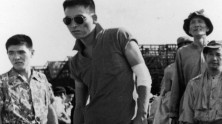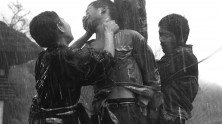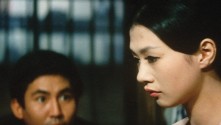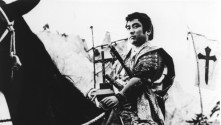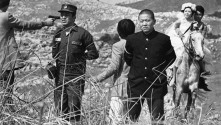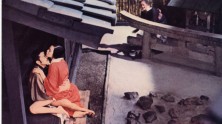
Merry Christmas Mr. Lawrence
A Town of Love and Hope
Oshima's unconventional adaptation of Laurence van der Post's celebrated memoir of imprisonment in a Japanese war camp adds a lush and at times almost operatic dimension to the book, combining its moving tale of camaraderie and cultural difference with an unusual critique of masculine authority and the homoeroticism of the bushido code. Starring a mesmerizing David Bowie in one of his great film roles, Oshima's late masterpiece also features memorable performances by Ryuichi Sakamoto – who composed the film's incredible score – and Takeshi Kitano in his very first film screen appearance. Made at the height of Oshima's later international period, Merry Christmas Mr. Lawrence's exploration of the Japanese nation and image as seen by outsiders offers a fascinating counterpoint to the imperious and insightful scrutiny of the Japanese psyche that cuts across Oshima's work.
Working firmly within the tradition of the Japanese social melodrama, Oshima's first film assignment for Shochiku offers a poignant and politically charged allegory of class alienation that clearly expresses the profound disillusionment with the repressive caste structure of mainstream Japanese society that unites all of Oshima's work. Oshima's script focuses on the first of many sympathetic criminals that recur throughout his films: a quiet working class schoolboy who enacts a strange form of thievery, selling a homing pigeon trained to return home after the boy has collected his money. To Oshima's chagrin, Shochiku changed his coolly detached original title, The Boy who Sold Pigeons, into a strangely inappropriate promise of melodramatic reconciliation.





